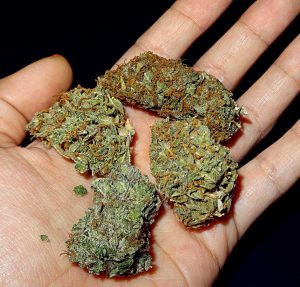 In recent years, laws regarding the Possession and Use of Marijuana have been changing throughout the country. This is true in the State of Illinois. In 1931, The Illinois Legislature made the recreational use of marijuana illegal. This legislation was part of a national trend which made the use of marijuana illegal nationally. In recent years, a new national trend has swept throughout the country which is having the opposite effect on the use of Marijuana. This trend clearly appears to be more accepting of the medical and recreational use of Marijuana. This national trend has swept into Illinois as well. In 2016, the Illinois Legislature decriminalized the possession of small amounts of Marijuana in Illinois. If you are caught with 10 grams or less of Marijuana, you will no longer be placed under arrest and subject to criminal prosecution and criminal penalties. In 2016 the State of Illinois made the possession of 10 grams or less of Marijuana a Municipal Ordinance Violation which only carries a civil penalty. The City of Chicago decriminalized the possession of small amounts of Marijuana in 2012.
In recent years, laws regarding the Possession and Use of Marijuana have been changing throughout the country. This is true in the State of Illinois. In 1931, The Illinois Legislature made the recreational use of marijuana illegal. This legislation was part of a national trend which made the use of marijuana illegal nationally. In recent years, a new national trend has swept throughout the country which is having the opposite effect on the use of Marijuana. This trend clearly appears to be more accepting of the medical and recreational use of Marijuana. This national trend has swept into Illinois as well. In 2016, the Illinois Legislature decriminalized the possession of small amounts of Marijuana in Illinois. If you are caught with 10 grams or less of Marijuana, you will no longer be placed under arrest and subject to criminal prosecution and criminal penalties. In 2016 the State of Illinois made the possession of 10 grams or less of Marijuana a Municipal Ordinance Violation which only carries a civil penalty. The City of Chicago decriminalized the possession of small amounts of Marijuana in 2012.
In 2013, the Illinois Legislature enacted the Compassionate Use of Medical Cannabis Pilot Program Act. This Act legalized the use of Marijuana for medical purposes under certain tight regulations. When the Medical Marijuana Act was enacted in 2013, it was considered one of the most restrictive and prohibitive Medical Marijuana programs in the United States. Recently, Illinois Governor Bruce Rauner signed into law numerous changes to the Medical Marijuana program which have loosened many of the restrictions and made it possible for more people to be able to use Medical Marijuana legally in the State of Illinois.
The recent changes to the Medical Marijuana program in Illinois allows doctors to prescribe Medical Marijuana in place of opioids, for a short period of time, for patients in need of relief from pain. This change to the Medical Marijuana program is an attempt to stop the opioid epidemic from spreading. Another change to the Medical Marijuana program in Illinois removes the requirement that an applicant has to submit to a background search which required that a sample of their fingerprints be submitted with the application. This will have the effect of speeding up the process for being approved to use Medical Marijuana in Illinois. Prior to the recent changes to the Medical Marijuana program, it could take three to four months for an application to be approved. This will also make it possible for patients with a criminal record to be able to legally obtain and use Medical Marijuana. With the recent changes, once your application is accepted and payment is received, you can legally purchase Medical Marijuana at a state approved Medical Marijuana Dispensary by simply showing them your receipt from the Illinois Department of Public Health, the agency that is charged with administering the Medical Marijuana program in Illinois.
 Chicago Criminal Lawyer Blog
Chicago Criminal Lawyer Blog


 It’s that time of the year again. The Alliance Against Intoxicated Motorists has released its annual study that keeps track of DUI arrests throughout Illinois. Once again, Rockford and Elgin top the list of towns in Illinois reporting the most DUI arrests in 2017. In 2017, Rockford reported 490 DUI arrests compared to 459 in 2016. The 2017 figures represent a 6.8% increase over the 2016 DUI arrest figures. Elgin came in second with a total of 418 DUI arrests in 2017. Elgin had 365 DUI arrest in 2016, a 14.5% increase over 2017.
It’s that time of the year again. The Alliance Against Intoxicated Motorists has released its annual study that keeps track of DUI arrests throughout Illinois. Once again, Rockford and Elgin top the list of towns in Illinois reporting the most DUI arrests in 2017. In 2017, Rockford reported 490 DUI arrests compared to 459 in 2016. The 2017 figures represent a 6.8% increase over the 2016 DUI arrest figures. Elgin came in second with a total of 418 DUI arrests in 2017. Elgin had 365 DUI arrest in 2016, a 14.5% increase over 2017.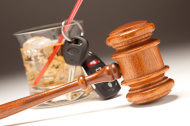 Most drivers will never have to decide whether to take a breathalyzer test or not. But if you are driving a vehicle in Illinois, you should be aware of what could happen to you and to your license if you are ever pulled over by a police officer and asked to take a breathalyzer test.
Most drivers will never have to decide whether to take a breathalyzer test or not. But if you are driving a vehicle in Illinois, you should be aware of what could happen to you and to your license if you are ever pulled over by a police officer and asked to take a breathalyzer test.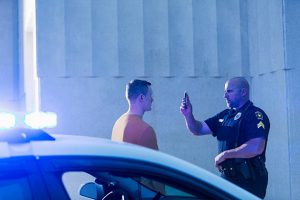 I recently met with a client who was arrested and charged with a DUI after he had pulled over his car to take a nap because he was afraid that he had too much to drink. You do not have to actually be driving your car to be charged with a DUI. You could be charged with a DUI as long as you had actual physical control of a vehicle on the public roadway. So as long as you were in a vehicle and you had the keys near you, the law will consider you to have been in actual physical control of the vehicle.
I recently met with a client who was arrested and charged with a DUI after he had pulled over his car to take a nap because he was afraid that he had too much to drink. You do not have to actually be driving your car to be charged with a DUI. You could be charged with a DUI as long as you had actual physical control of a vehicle on the public roadway. So as long as you were in a vehicle and you had the keys near you, the law will consider you to have been in actual physical control of the vehicle.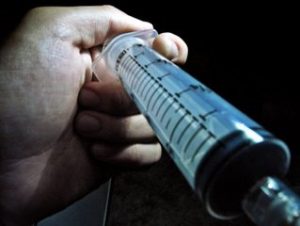 Police get frustrated when they pull over a motorist for suspicion of Driving Under the Influence of Alcohol and the driver refuses to submit to a breathalyzer test when the officer requests that they take such a test. The reason behind their frustration is because, in many cases, if they do not have a breathalyzer test result, it becomes harder for the state to prove in Court that the driver was operating a motor vehicle under the influence of alcohol.
Police get frustrated when they pull over a motorist for suspicion of Driving Under the Influence of Alcohol and the driver refuses to submit to a breathalyzer test when the officer requests that they take such a test. The reason behind their frustration is because, in many cases, if they do not have a breathalyzer test result, it becomes harder for the state to prove in Court that the driver was operating a motor vehicle under the influence of alcohol.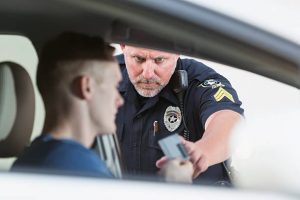 Being pulled over by a police officer is a stressful experience. This is especially true if you know that you have been drinking alcohol. Your mind starts racing and you want to make sure that you don’t give the police officer any reason to suspect that you are under the influence of alcohol. Unfortunately, many motorists don’t really think before they open their mouth. They don’t realize that the police are not there to help them. The police have a job to do and their job begins the moment they notice your vehicle. You need to understand what the police officer is doing and how your conduct and your statements can be used against you in court.
Being pulled over by a police officer is a stressful experience. This is especially true if you know that you have been drinking alcohol. Your mind starts racing and you want to make sure that you don’t give the police officer any reason to suspect that you are under the influence of alcohol. Unfortunately, many motorists don’t really think before they open their mouth. They don’t realize that the police are not there to help them. The police have a job to do and their job begins the moment they notice your vehicle. You need to understand what the police officer is doing and how your conduct and your statements can be used against you in court. Last June, the United States Supreme Court issued a decision in a DUI case that many DUI lawyers had been closely following. The case is actually three separate cases consolidated into one case captioned, Birchfield v. North Dakota. What united all 3 cases was that they all dealt with a North Dakota law which made it an actual crime to refuse to take a breathalyzer test and a blood test when requested to do so by the police. There is no such law in Illinois. A refusal to take a breathalyzer test or blood test can result in the suspension of your driving privileges in Illinois but is not an actual crime in Illinois. However, 13 other states make a refusal to submit to a breathalyzer test or blood test a crime. Both North Dakota and Illinois have “implied consent” laws which means that when you operate a motor vehicle upon the public roads, you consent to submitting to a breathalyzer and a blood test when requested to by the police. Illinois warns you that failure to consent to a breathalyzer test could result in the suspension of your driving privileges while North Dakota warns you that failure to consent to a breathalyzer test could result in criminal prosecution. Refusing to submit to a breathalyzer or a blood test is not a crime in Illinois. The refusal to submit to such testing can only result in the suspension of your license for a period of time, usually one year, if this is your first DUI. Sometimes, refusing to submit to a breathalyzer or blood test could benefit the underlying DUI case making it harder for the state to prove their case with test results, but will not stop the suspension of your driver’s license. Refusing to submit to a breathalyzer test or a blood test is a misdemeanor in North Dakota. By making it a crime to refuse to submit to a breathalyzer or a blood test, a driver would be more likely to consent to such testing, thereby making it easier for the state to prove guilt in an underlying DUI prosecution.
Last June, the United States Supreme Court issued a decision in a DUI case that many DUI lawyers had been closely following. The case is actually three separate cases consolidated into one case captioned, Birchfield v. North Dakota. What united all 3 cases was that they all dealt with a North Dakota law which made it an actual crime to refuse to take a breathalyzer test and a blood test when requested to do so by the police. There is no such law in Illinois. A refusal to take a breathalyzer test or blood test can result in the suspension of your driving privileges in Illinois but is not an actual crime in Illinois. However, 13 other states make a refusal to submit to a breathalyzer test or blood test a crime. Both North Dakota and Illinois have “implied consent” laws which means that when you operate a motor vehicle upon the public roads, you consent to submitting to a breathalyzer and a blood test when requested to by the police. Illinois warns you that failure to consent to a breathalyzer test could result in the suspension of your driving privileges while North Dakota warns you that failure to consent to a breathalyzer test could result in criminal prosecution. Refusing to submit to a breathalyzer or a blood test is not a crime in Illinois. The refusal to submit to such testing can only result in the suspension of your license for a period of time, usually one year, if this is your first DUI. Sometimes, refusing to submit to a breathalyzer or blood test could benefit the underlying DUI case making it harder for the state to prove their case with test results, but will not stop the suspension of your driver’s license. Refusing to submit to a breathalyzer test or a blood test is a misdemeanor in North Dakota. By making it a crime to refuse to submit to a breathalyzer or a blood test, a driver would be more likely to consent to such testing, thereby making it easier for the state to prove guilt in an underlying DUI prosecution.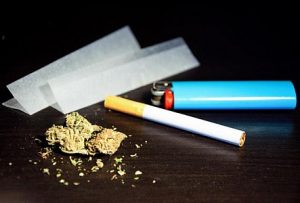 On January 1, 2014, Medical Marijuana became legal in Illinois. The Illinois Medical Marijuana policy is stricter than most other states that have enacted Medical Marijuana. Illinois does not allow Medical Marijuana to be grown at home. The Marijuana must be cultivated at a state-regulated facility that is under strict rules and regulations. To be allowed to use Medical Marijuana, you must apply for permission from the Illinois Department of Health. The application process is strict and it may take several months for you to be approved. If you are approved to use Medical Marijuana, you will be given an identification card. You will only be allowed to purchase 2.5 ounces of medical marijuana every 14 days. The program is tightly restricted and supervised.
On January 1, 2014, Medical Marijuana became legal in Illinois. The Illinois Medical Marijuana policy is stricter than most other states that have enacted Medical Marijuana. Illinois does not allow Medical Marijuana to be grown at home. The Marijuana must be cultivated at a state-regulated facility that is under strict rules and regulations. To be allowed to use Medical Marijuana, you must apply for permission from the Illinois Department of Health. The application process is strict and it may take several months for you to be approved. If you are approved to use Medical Marijuana, you will be given an identification card. You will only be allowed to purchase 2.5 ounces of medical marijuana every 14 days. The program is tightly restricted and supervised. It’s been a tough week. You have been swamped at work and you have been busy at home with activities with the kids. Finally it’s Friday and you made it. Your co-workers invite you to go out for drinks to relax after the end of a long week and you accept. After a couple of hours at a local bar of unwinding with your co-workers and after a few drinks, it’s time to go home. You get in your car and start driving and after a few minutes you realize that you may be in no condition to drive. You don’t know if it’s the alcohol or if you are just tired from your long week, so you decide to pull over and take a nap because you don’t want to take a chance of nodding off while driving and getting into an accident. So you pull over on a side street, park your car, shut off the engine and take a nap. After a few minutes you wake up to the sounds of knocking on your car window. It’s a police officer who is trying to get your attention. You explain to the officer that you are tired so you pulled over to take a nap before heading home. The officer asks you if you have been drinking and you tell him you had a couple of drinks a while ago but had a long week and are just tired. You pull your car keys out of your pocket and the officer asks you to exit your vehicle. The officer asks you to perform certain tests and then informs you that your are under arrest for suspicion of driving under the influence of alcohol. So how can you be charged with a DUI when you were just taking a nap in your car?
It’s been a tough week. You have been swamped at work and you have been busy at home with activities with the kids. Finally it’s Friday and you made it. Your co-workers invite you to go out for drinks to relax after the end of a long week and you accept. After a couple of hours at a local bar of unwinding with your co-workers and after a few drinks, it’s time to go home. You get in your car and start driving and after a few minutes you realize that you may be in no condition to drive. You don’t know if it’s the alcohol or if you are just tired from your long week, so you decide to pull over and take a nap because you don’t want to take a chance of nodding off while driving and getting into an accident. So you pull over on a side street, park your car, shut off the engine and take a nap. After a few minutes you wake up to the sounds of knocking on your car window. It’s a police officer who is trying to get your attention. You explain to the officer that you are tired so you pulled over to take a nap before heading home. The officer asks you if you have been drinking and you tell him you had a couple of drinks a while ago but had a long week and are just tired. You pull your car keys out of your pocket and the officer asks you to exit your vehicle. The officer asks you to perform certain tests and then informs you that your are under arrest for suspicion of driving under the influence of alcohol. So how can you be charged with a DUI when you were just taking a nap in your car?